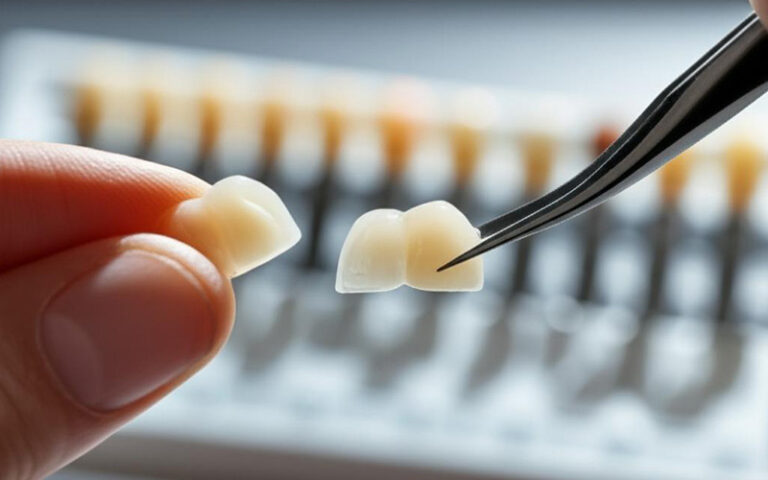
How to Get Free or Deeply Discounted Dental Implants: Your Simple Guide
If you’re missing teeth, you know how much it hurts—not just your mouth, but your self-esteem. Dental implants can fix your smile, but the price tag is enough to make most people’s jaws drop. Is there any way to get them for free or pay a lot less? In this guide, I’ll break down every real way you can skip—or cut—the dental bill, help you catch scams, and show you how to get the smile you need without losing your money. Read on; your teeth and your wallet will thank you.
Table of Contents
- Why Are Dental Implants So Expensive?
- Is It Really Possible to Get Free Dental Implants?
- What Are Dental Schools, and How Can They Help?
- Can Clinical Trials Really Give You Free Implants?
- What Charities or Non-Profit Organizations Offer Help?
- Can Government or State Programs Cut My Costs?
- Are There Low-Cost Dental Implant Alternatives?
- How Can I Find Financial Help for Dental Implants?
- Can Dental Tourism Save Money? Is It Safe?
- What Should I Watch Out For?
- FAQ About Free Dental Implants
- Key Takeaways
Why Are Dental Implants So Expensive?
Let’s be honest: no one likes seeing a big price tag, especially for teeth. The average dental implant in the U.S. can cost $4,500–$9,000 for just one tooth. For a whole mouth? You might spend $40,000–$80,000. Why so expensive?
First, think about everything involved. Dental implants use titanium or zirconia because they are strong and safe. Special dentists need years of school to learn how to do implants. You also pay for fancy scanning, planning, and special tools, plus the crown itself. All this builds up. (Want to see a simple cost breakdown? Look at this crown and bridge lab resource.)
But don’t let that number scare you. There are many ways to pay less, or even get some help with the bill. Let’s see what’s really possible.
Is It Really Possible to Get Free Dental Implants?
Everyone wants to know this. The dream is 100% free dental implants. Honestly, most people get big discounts, not completely free, care. But saving a lot is better than nothing!
Here’s the truth—totally free implants are hard to find. Usually, you must meet certain rules: like low income, health problems, being a veteran, or joining a special program. Even then, you might have to wait a long time.
But some programs, clinics, and groups can get you very close to free. Sometimes you just pay for the crown or a checkup; other times, you might get the whole thing covered. Let’s see who’s offering these.
What Are Dental Schools, and How Can They Help?
When I needed a root canal, I thought about dental schools. Why? Because students there need real patients to practice on—while real dentists watch them! Here’s what this means for implants:
How you save: Dental schools and college programs often charge 30%–70% less than regular dentists. Sometimes you can get one implant for $1,500–$4,000 total.
Good points: These clinics have the newest tools and teachers who check every step. You’re often treated by someone who really wants to do a good job!
Bad points: You might wait longer for your spot. The work can take months. And spots are few, so you may have a waiting list.
How to find a program: Start with the American Dental Association (ADA) website or call nearby colleges. You’ll need to sign up and maybe show proof of income or health.
Real-life example: My friend got an implant at a college clinic. He waited three months for his first visit—but he paid less than half of what his dentist wanted.
Pro tip: Ask if your school works with a top digital lab so your implant looks and feels good.
Can Clinical Trials Really Give You Free Implants?
Did you know you could be part of a test group and get free dental care? Here’s how. Clinical trials and research projects test new ways, materials, or tools—sometimes looking for people who need implants.
How you save: Clinical trials may offer free or almost free implants if you match what they’re looking for (like a certain kind of jaw shape). Sometimes you only pay with your time.
Good points: Get the newest care. Experts watch closely.
Bad points: You have to fit strict rules (age, health, which teeth are missing). Some trials don’t actually use real implants. And you may have extra checkups.
How to find a trial: Look at ClinicalTrials.gov or dental school websites for “dental implant trials.” Or ask your dentist about nearby studies.
Example: One man with jawbone loss joined a study trying a new bone fix. He got the implant, post, and crown free—just for helping out.
So, if you’re okay with helping research (and sharing your story), these programs are worth checking out.
What Charities or Non-Profit Organizations Offer Help?
Don’t give up hope if you can’t pay for regular dental care! Many charities exist to give free or much cheaper dental work—especially for low income, health problems, or special needs.
Some examples:
- Dental Lifeline Network (Donated Dental Services, DDS): This group has given away over $442 million in free dental care to people who are old, have big health issues, or have disabilities. (Check their website to see if you can join.)
- Cosmetic Dentistry Grants Foundation: This group sometimes helps pay for implants—but usually, you pay a part.
- Local free clinics: Many cities and groups run dental clinics. Some offer costs based on your income or even full free care for those who qualify.
- Veterans’ organizations: Groups like the American Legion sometimes help veterans get dental help.
How to join: Each group has its own way, but most want proof of income, health, or if you are a veteran. Waiting lists are common, so ask early!
Story: I once saw a retired soldier get a full set of implants through DDS. It changed his life—he said he could “finally eat steak again!” But he had to wait almost a year.
Can Government or State Programs Cut My Costs?
Getting government help is tricky—there’s some, but not for everyone. Here are the main options:
Medicaid
Every state runs its own Medicaid rules. Most cover dental for kids, but for adults, it’s more limited. Only a few states pay for dental implants, and even then it’s usually for urgent needs. New York sometimes covers certain implants if you really need them for health.
Medicare
Original Medicare doesn’t pay for dental work, including implants. But some private Medicare Advantage plans might cover a little dental care. The catch? Benefits are small, and implants are rarely fully paid for.
Veterans Affairs (VA)
If you’re a veteran with a mouth injury from your service, are 100% disabled, or a former POW, you may get full VA dental care—even implants. Sadly, only about 8% of veterans meet these rules.
State and Local Health Departments
Some states and counties help pay for dental care for seniors, low-income people, or those with disabilities. It’s usually for basic care, but you can always ask if implants are included.
What to do: Go to your state health department website, call Medicaid, or visit your local VA. Even if you can’t get help, they can point you to more dental care info.
Are There Low-Cost Dental Implant Alternatives?
If you can’t get full implants for free, don’t panic. There are ways to pay less or choose cheaper options:
- Mini implants: Use smaller screws—often half the cost of regular implants.
- Removable dentures: Old-school, but much cheaper. Some dentures use little posts for more grip.
- Dental bridges: Connect to two healthy teeth; cost less than an implant but not as strong.
How Can I Find Financial Help for Dental Implants?
Even if you can’t get totally free care, there are good ways to make payments easier, find deals, or get help:
Payment Plans & Financing
- Many dentists let you pay a little every month.
- Some credit companies (like CareCredit and LendingClub) offer loans for medical care. Watch out for high interest.
- Some clinics don’t check your credit—they just want to help you get care.
Dental Insurance & Benefits
- Some dental plans now pay for part of implant costs, but usually there’s a yearly limit.
- Use Flexible Spending Accounts (FSA) or Health Savings Accounts (HSA) if your work offers these.
Discount Dental Plans
- These are like membership clubs. Pay a yearly fee, get 10–60% off all dental work, including implants. Not insurance, but it saves you money.
Crowdfunding
- Sites like GoFundMe let you ask friends and family to help.
- Getting help depends on how well you tell your story and share it.
Scholarships and Grants
- Some charities offer dental implant grants for people in tough situations. Search online for local or national help.
Can Dental Tourism Save Money? Is It Safe?
You may have heard about “dental vacations.” This means going to another country for dental care—like Mexico, Costa Rica, Hungary.
Good points: Dental work can be half price, and sometimes you get a vacation trip. For example, what costs $4,000 per tooth in the U.S. might be $1,000 in Mexico.
Bad points: You pay to travel and may need to go more than once. If something goes wrong, it’s hard to get help back home. Not all clinics work the same as in the U.S., so check reviews and be careful!
What Should I Watch Out For?
While looking for cheap dental implants, avoid these problems:
- Scams and fake promises of “totally free” implants for anyone—especially if they want money up front.
- Unlicensed clinics or untrained workers. Check all their licenses.
- Hidden costs like x-rays, pulling teeth, or bone fixing. Ask for all costs up front.
- Bad quality materials or labs that cut corners. Your health matters most!
If you’re not sure, ask about the company, lab, and dentist’s training. Good clinics use trusted labs and show you real certificates.
FAQ About Free Dental Implants
Are there programs that cover full dental implants for everyone?
No, most have rules, like low income, disability, age, or being a veteran.
Do dental schools offer the same quality as private dentists?
Yes! All care is watched by trained dentists, and they often use the newest tech.
How long does it take to get accepted into a charity program?
It can take months (sometimes over a year) because so many people ask for help.
Will Medicaid or Medicare pay for my implants?
Usually not, especially for adults, but there are rare cases (serious need) in a few states.
Is dental tourism safe?
It can be, if you pick a good clinic. Always check licenses and read reviews.
Key Takeaways
- Dental implants are pricey, but there are ways to get help paying.
- Really free implants are rare and need you to match certain rules.
- Dental schools, charity groups, government help, research trials, and discount plans are all worth a try.
- Always check clinics and programs so you don’t get scammed or get bad care.
- Don’t forget cheaper options to full implants, like mini implants, dentures, and bridges.
- Payment plans, loans, and crowdfunding can make dental bills easier to manage.
- Check out trusted dental labs and info to learn what’s right for you.
Your new smile might be closer than you think—start with patience, asking questions, and careful thinking. Remember, a healthy mouth means a happier you!
References
- American Dental Association (ADA)
- Dental Lifeline Network (DDS)
- Cosmetic Dentistry Grants Foundation
- U.S. Department of Veterans Affairs
- ClinicalTrials.gov
- Delta Dental Dental Implant Cost Survey
- teeth information








